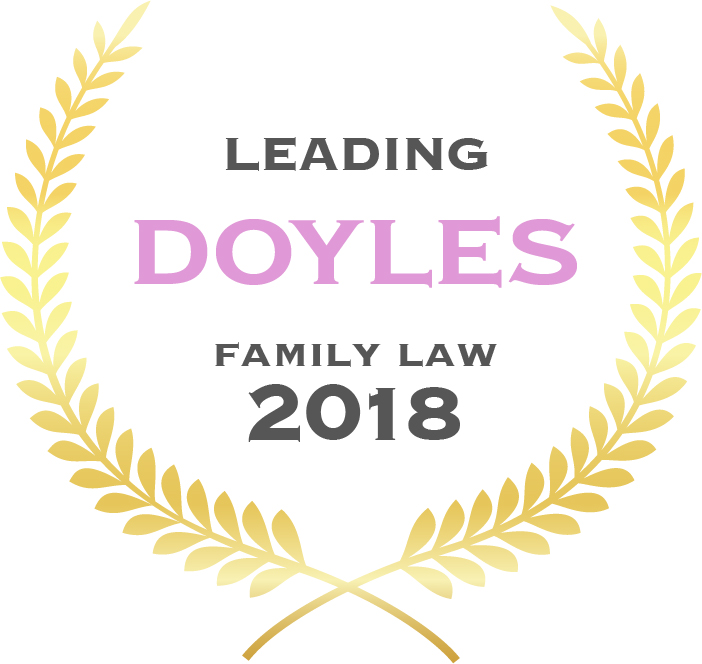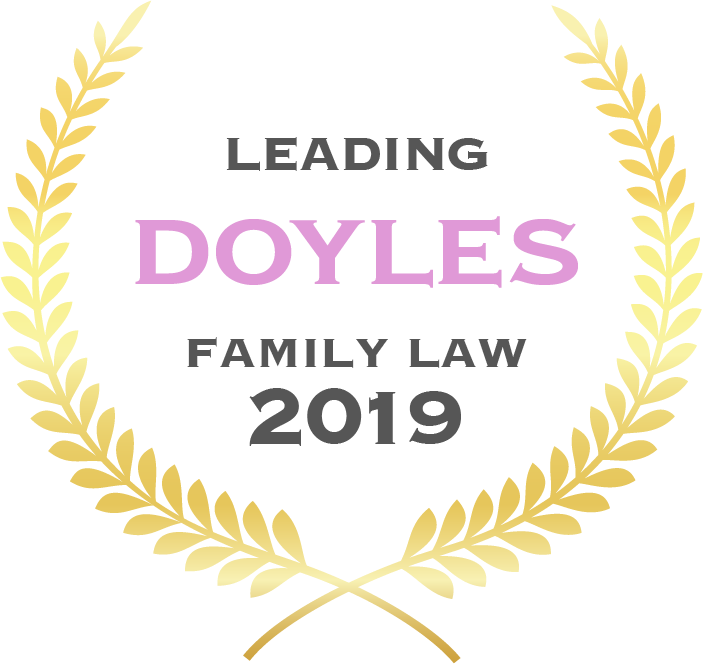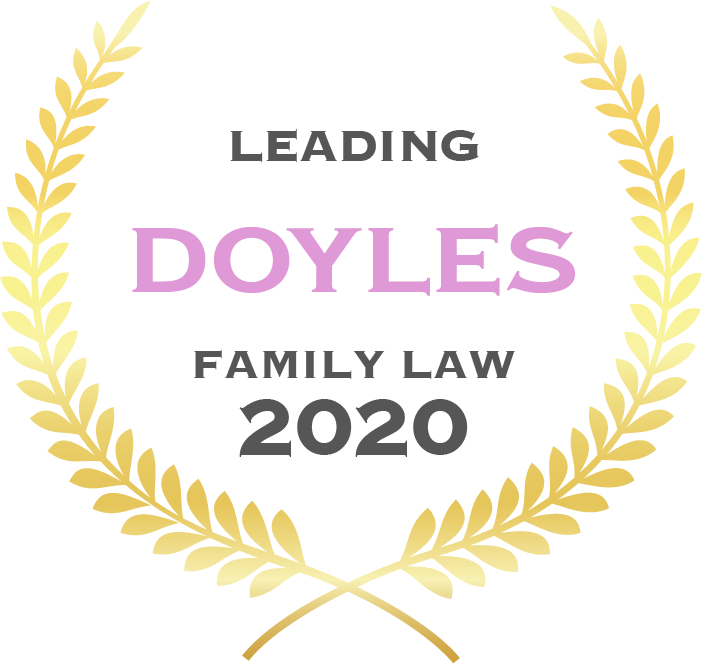These arrangements are to take into consideration (but are not limited to) the following:
- the parental responsibility of the child;
- the living arrangements and/or care arrangements of the child;
- the exchange of information between the parent;
- the care arrangements of the child for special occasions (Christmas, Birthday(s) Mother’s/Father’s Day etc);
- the telephone/electronic/postal communication between the parents and the child;
- any international travel of the child and/or passports relating to the child; and
- any further specific issues relating to the child (i.e changeover, extra curriculum activities, return of children’s possessions and non-denigration clauses etc).
When considering the finalisation of parenting and child custody matters by way of agreement or Order of the Court, we are required to give consideration to all applicable sections of the Family Law Act 1975.
In summary, the Act provides that:
- there is a presumption that the parental responsibility of a child is shared by each parent of that child until such time as that child reaches the age of 18;
- that parental responsibility is not affected by a change in the relationship of the child’s parents and remains in place until such time as that child reaches the age of 18, unless it is earlier rebutted by an Order of the Court;
- the best interest of the child is paramount;
- in deciding what is in the best interest of a child, two tiers of considerations must be taken into account, primary considerations and additional considerations;
- the primary considerations are:
- the benefit to the child of having a meaningful relationship with both of the child’s parents; and
- the need to protect the child from physical or psychological harm from being subjected to, or exposed to, abuse, neglect or family violence – this aspect receives preference over time with a child.
- the additional considerations are:
- any views expressed by the child and any factors (such as the child’s maturity or level of understanding) that the court thinks are relevant to the weight it should give to the child’s views;
- the nature of the relationship of the child with:
- each of the child’s parents; and
- other persons (including any grandparent or other relative of the child);
- the extent to which each of the child’s parents has taken, or failed to take, the opportunity:
- to participate in making decisions about major long-term issues in relation to the child;
- to spend time with the child; or
- to communicate with the child.
- the extent to which each of the child’s parents has fulfilled, or failed to fulfil, the parent’s obligations to maintain the child;
- the likely effect of any changes in the child’s circumstances, including the likely effect on the child of any separation from:
- either of his or her parents; or
- any other child, or other person (including any grandparent or other relative of the child), with whom he or she has been living;
- the practical difficulty and expense of a child spending time with and communicating with a parent and whether that difficulty or expense will substantially affect the child’s right to maintain personal relations and direct contact with both parents on a regular basis;
- the capacity of:
- each of the child’s parents; and
- any other person (including any grandparent or other relative of the child);
- to provide for the needs of the child, including emotional and intellectual needs;
- the maturity, sex, lifestyle and background (including lifestyle, culture and traditions) of the child and of either of the child’s parents, and any other characteristics of the child that the court thinks are relevant;
- if the child is an Aboriginal child or a Torres Strait Islander child:
- the child’s right to enjoy his or her Aboriginal or Torres Strait Islander culture (including the right to enjoy that culture with other people who share that culture);
- the likely impact any proposed parenting order under this Part will have on that right;
- the attitude to the child, and to the responsibilities of parenthood, demonstrated by each of the child’s parents;
- any family violence involving the child or a member of the child’s family;
- if a family violence order applies, or has applied, to the child or a member of the child’s family–any relevant inferences that can be drawn from the order, taking into account the following:
- the nature of the order:
- the circumstances in which the order was made;
- evidence admitted in proceedings for the order;
- any findings made by the court in, or in proceedings for, the order; and
- any other relevant matter;
- whether it would be preferable to make the order that would be least likely to lead to the institution of further proceedings in relation to the child;
- any other fact or circumstance that the court thinks is relevant;
If the parents are able to come to an agreement in relation to the current and future parenting arrangements of their child the agreement can be established by way of an informal or formal agreement.
Although some separated parents get along and are happy to continue to follow the terms of an informal parenting agreement without any issue, many parents do not.
In order to provide certainty in respect of the current and future parenting arrangements of their child, it is recommended that parents formalise any agreement reached by entering into one of the following written agreements:
- a parenting plan; or
- minutes of consent.
If the parents are not able to come to an agreement in relation to the current and future parenting arrangements of any children borne of their relationship, they may be required to apply to the Court seeking resolution of any outstanding matters – however, it cannot be done unless the parents have tried to resolve their dispute through mediation.
The Family Law team at Marino Law holds the expertise required to assist you in all aspects of your family law matter in respect of the current and future parenting arrangements of the children.
Parenting Plan
A parenting plan is an agreement between the parents of a child resolving any outstanding parenting matters between them. They are ordinarily entered into upon successful resolution of a matter following a family dispute resolution conference with a family dispute resolution practitioner/mediator.
A parenting plan must be formalised by way of a written agreement (in the correct form), dated and executed by both parents. A parenting plan will ordinarily deal with the following parenting matters:
- the parental responsibility of the child;
- the living arrangements and/or care arrangements of the child;
- the exchange of information between the parents;
- the care arrangements of the child for special occasions (Christmas, Birthday(s) Mother’s/Father’s Day etc);
- the telephone/electronic/postal communication between the parents and the child;
- any international travel of the child and/or passports relating to the child; and
- any further specific issues relating to the child (i.e changeover, extra curriculum activities, return of children’s possessions and non-denigration clauses etc).
A parenting plan is not a court order and is not enforceable under the Family Law Act 1975. It may be used to evidence the parent’s intention in relation to any parenting arrangements of a child, but there is no penalty that applies to a party who breaches a term of the plan.
Subsequently, we recommend that any parenting plan entered into by a parent be redrafted into an application for consent orders and filed in the Federal Circuit and Family Court.
If you are considering entering into a parenting plan regarding your parenting matters it is important to seek legal advice from an experienced family law practitioner.
The Family Law team at Marino Law holds the expertise required to assist you in negotiating and drafting a parenting plan.
Consent Order
A consent order is an application filed with the Federal Circuit and Family Court that contains an agreement between the parents of a child resolving any outstanding parenting matters between them.
In order to make an application for a consent order, the parties must complete and file with the following documents:
- application for consent order;
- minute of consent; and
- annexure to draft consent parenting order.
A small filing fee will apply.
A consent order will ordinarily deal with (but not be limited to) the following parenting matters:
- the parental responsibility of the child;
- the living arrangements and/or care arrangements of the child;
- the exchange of information between the parents;
- the care arrangements of the child for special occasions (Christmas, Birthday(s), Mother’s/Father’s Day etc);
- the telephone/electronic/postal communication between the parents and the child;
- any international travel of the child and/or passports relating to the child; and/or
- any further specific issues relating to the child (i.e changeover, extra curriculum activities, return of children’s possessions and non-denigration clauses etc).
Upon filing the application, a registrar of the Court will review the documents. The registrar must be satisfied that the terms that have been agreed upon by the parents comply with the legal principles relevant to parenting orders and is in the child’s best interests and reasonably practicable.
If the registrar is satisfied, a final parenting order will issue, without the parents being required to attend at a hearing.
Once made, a consent order is like any other court order. It is enforceable and significant penalties may apply if any of the terms are breached by a party, without reasonable excuse.
The terms of a consent order can only be set aside or varied by way of a further agreement (consent order) of the parties or by filing an initiating application to the Court.
In order to file an initiating application when a final parenting order is already in place, a party must first satisfy the Court that there has been a significant change of circumstances, that requires a change to the current parenting arrangements under the existing order.
It is worthy noting, parenting orders, unlike property orders are never final. Circumstances may change, rendering the orders not appropriate and either party may then apply to the Court for a change to the orders – however, strict rules apply in this regard.
Although a consent order can be entered into without the parties being required to seek independent legal advice, each party should consider obtaining independent advice about the effect of any proposed orders as well as assistance with the drafting of the proposed order.
If you are considering entering into a consent order regarding your parenting matters it is important to seek legal advice from an experienced family law practitioner. The family law team at Marino Law holds the expertise required to assist you in negotiating and preparing a consent order.
Application to the Court for Parenting
If the parents are not able to come to an agreement in relation to the current and future parenting arrangements of any children borne of their relationship, they may be required to apply to the Federal Circuit and Family Courts seeking resolution of any outstanding matters.
Before making an application to the Court, the Act requires parties to make a genuine attempt to resolve the dispute by attending a family dispute resolution conference with a registered family dispute resolution practitioner. A certificate provided by the family dispute resolution practitioner must accompany any initiating application to the Court.
There are certain circumstances where the Court may exempt a matter from the requirement to attend family dispute resolution; however, these circumstances are limited and not applicable to every parenting matter. An example is where there is family violence, abuse, risks thereof etc.
An application may be made by any person concerned with the care, welfare or development of a child and may seek Orders relating to the parenting matters:
- the parental responsibility of the child;
- the living arrangements and/or care arrangements of the child;
- the exchange of information between the parents;
- the care arrangements of the child for special occasions (Christmas, Birthday(s), Mother’s/Father’s Day etc);
- the telephone/electronic/postal communication between the parents and the child;
- any international travel of the child and/or passports relating to the child; or
- any further specific issues relating to the child (i.e changeover, extra curriculum activities, return of children’s possessions and non-denigration clauses etc).
An application can also provide for the making of interim orders. Orders seeking the recovery (return) of a child into the care of a party or the interim living and care arrangements of a child are often sought on an interim basis. These matters will ordinarily be dealt with on the first court date.
If there are urgent circumstances that apply to the parenting matter, an application for the matter to be heard on an urgent and ex parte basis can be made. Such matters are ordinarily heard in the absence of the respondent. The registry should be advised of the urgency of the application at the time of filing by the applicant clearly outlining the basis of any such urgency (i.e. the recovery of a child at risk of harm).
There are only limited circumstances where the Court may grant a request for an urgent ex parte application and such circumstances may not apply to every parenting matter.
The Federal Circuit and Family Court have jurisdiction in all family law matters.
After filing the application the applicant will be required to organise service of the application on the respondent. This application must be served on the respondent in person and must not be delivered by the applicant.
After the application is filed, the matter will be listed for procedural or interim hearing. It is likely the Court will not make interim orders on the first return date. All parties should attend on this occasion (and all other occasions) to avoid orders being made in their absence. The Court will manage the matter and make orders forthe matter to advance to an interim and/or final hearing.
Throughout the matter the Court will make procedural orders, in order to progress the matter to final hearing or resolution. Parties may be required to attend upon experts for interviews, counselling and/or assessment throughout the matter, in order to provide the Judge with independent evidence to assist in final determination of the matter.
The matter could take several months to progress to a final hearing, depending upon the complexity of the case. At any stage of the matter, the parties can agree to resolve the dispute by way of a consent order. If no agreement is reached, the matter will proceed to a final hearing.
At final hearing the Court will be required to determine the matter on a final basis. The parties will be required to file further affidavits and make themselves available for cross-examination by the other party at the final hearing. Any evidence before the Court subject to the issue of any subpoena or appointment of expert witness will be considered by the Judge.
In determining the matter the Judge is required to give full consideration to the legal principles that relate to all parenting matters. These principles are gleaned from the applicable sections of Family Law Act 1975 and relevant case law.
Once the matter has been heard, judgement will be delivered and a final Order will issue. This Order is enforceable and significant penalties may apply if any of the terms are breached by a party, without reasonable excuse.
If you are considering applying to the Federal Circuit and Family Court in relation to your parenting matters it is important to seek legal advice from an experienced family law practitioner. We’re specialists in dealing with child custody, parenting arrangements and court applications.
The Family Law team at Marino Law holds the expertise required to assist you in all aspects of your child custody and parenting arrangements.
Marino Law has been named as a Recommended Gold Coast Family and Divorce Law Firm for several years running on the prestigious Doyles Guide.

Marius Eden, Special Counsel is an Accredited Specialist in Family Law. Specialist Accreditation acknowledges an additional course of study and the achievement of a high level of practical skill and knowledge in the area of expertise.








